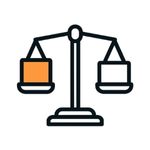
Choosing between renting and buying a home is a major financial decision for many South Africans. While buying is often linked to stability and long-term wealth, renting can offer greater flexibility, lower upfront costs, and access to areas that may be unaffordable to purchase in. With rising property prices, interest rates, and varying personal needs, each option carries its own set of benefits and trade-offs.
Key Takeaways
- Buying Offers Ownership but Comes with High Costs: Purchasing a home allows you to build equity and offers long-term stability, but it requires a large financial commitment, including bond repayments, maintenance, and upfront fees like transfer duties and legal costs.
- Renting Provides Flexibility and Lower Risk: Renting is often more affordable in the short term and suits individuals who value mobility or cannot afford to buy. It also shifts maintenance responsibility to the landlord and allows tenants to live in areas that might be too costly to buy in.
- Government Programmes Support First-Time Buyers: Subsidies like FLISP and assistance from the NHFC help low- to middle-income earners afford their first home, offering a bridge between renting and owning through structured financial support.
About Arcadia Finance
Getting a loan doesn’t have to be stressful. Arcadia Finance lets you apply with zero fees and pick from 19 reputable lenders approved by South Africa’s National Credit Regulator. Fast, secure, and tailored to your needs.
The Case for Buying a Home
Owning a home in South Africa is often associated with long-term stability and financial growth. It allows you to build equity, gain tax benefits, and invest in an asset rather than paying rent.
Bond repayments contribute to ownership, unlike rent, which benefits a landlord. Property can increase in value over time, particularly in sought-after areas, and ownership may qualify you for certain tax advantages.
There’s also a lifestyle benefit. Owning gives full control over your space: remodelling, gardening, or making structural changes, all without needing approval. This appeals to families seeking permanence and a long-term home.
However, buying comes with significant financial pressure. With the current prime lending rate at 10.75%, affordability is a challenge. A R3 million property, with a 10% deposit, may require repayments nearing R30 000 per month, excluding maintenance, rates, and insurance.
Buyers need a stable income and extra funds for unexpected costs. The idea that property ownership is essential is no longer a certainty in today’s market.
Upfront expenses also include transfer duties, legal fees, and bond registration, totalling up to 10% of the purchase price. Ongoing repairs, like a burst geyser or roof damage, are the owner’s responsibility, adding further cost and risk.
If you are leaning towards buying rather than renting, it is worth exploring what it costs to build a home from scratch.
Benefits Of Homeownership
- Building Long-Term Equity: One of the key advantages of purchasing a home is the ability to build equity over time. Each monthly bond repayment reduces the amount owed and increases your ownership share in the property. This accumulated equity may become a valuable financial resource in the future.
- Greater Stability And Freedom: Owning your own home gives you the ability to settle down without worrying about lease renewals or sudden rent increases. You can renovate, redecorate, or extend as needed, giving you full control over the property to suit your needs and preferences.
- Potential Tax Relief: Homeowners may qualify for certain tax deductions, including on mortgage interest and property rates. These tax-related savings can help reduce your taxable income depending on your financial profile.
Drawbacks Of Homeownership
- High Initial Financial Commitment: Buying a property involves several upfront costs. These typically include a deposit, bond registration fees, attorney fees, and often a professional property inspection before finalising the sale.
- Ongoing Responsibilities And Expenses: As the legal owner, you are fully responsible for the property’s maintenance and any repairs required. These costs can vary from minor fixes to major replacements, which could place pressure on your monthly budget.
- Exposure To Market Fluctuations: The property market can experience periods of decline, and there is no certainty that your home will increase in value. Economic conditions, location, and external factors can all affect property values.

The Case for Renting a Home
For many younger South Africans, owning feels out of reach, making renting a more realistic option.
Renting offers flexibility and fewer commitments, making it easier to relocate if needed. It also allows access to properties in prime locations that may be unaffordable to buy. Landlords usually cover maintenance, reducing financial responsibility for tenants.
Financially, renting can be more affordable. A home valued at R3 million may rent for around R20 000 monthly, far less than the bond repayment.
Renting is ideal for those valuing mobility and career flexibility. It’s also a practical choice for those prioritising liquidity over long-term property commitments.
Savings from renting can be invested in shares or other accessible financial products, offering potential returns without the burden of property maintenance. For some, this is a more effective way to build wealth in an uncertain housing market.
Benefits Of Renting
- Greater Flexibility And Mobility: Renting is ideal for individuals or families who may need to relocate within a short period. It offers freedom from the complexities of property sales, making it suitable for those who are not yet ready to commit to a fixed location.
- Lower Upfront Financial Costs: Compared to purchasing a property, renting generally requires a smaller upfront outlay. Typically, a deposit equal to one or two months’ rent and the first month’s payment are all that’s needed to move in.
- Reduced Financial Risk: Tenants are not directly affected by shifts in the property market. If housing prices decline, this will not impact renters financially. They also avoid unexpected maintenance costs, which are typically covered by the landlord.
Drawbacks Of Renting
- No Ownership Or Asset Growth: Monthly rental payments do not contribute to ownership of any asset. This means that over the long term, renters do not accumulate any property-based equity.
- Possibility Of Rent Increases: Depending on the location and rental agreement, landlords may adjust the rent annually or more frequently, which can complicate financial planning and make long-term budgeting more difficult.
- Limited Rights And Customisation: Tenants usually need the landlord’s consent to make even minor alterations to the property. This can limit your ability to make the space truly feel like your own or adapt it.
Wondering whether to keep renting or take the plunge into homeownership? If monthly rent is causing strain, consider a Loan to Pay Rent to tide you over while you weigh your long-term plans! No need to miss a single rent payment as you decide your next move.
Rent-To-Own
Rent-to-own arrangements can serve as a practical compromise between renting and buying a home. This type of agreement enables a tenant to lease a property with the potential to purchase it after a set period. A portion of the monthly rental payments is usually allocated towards the eventual purchase price, allowing the occupant to gradually build up a deposit while already residing in the property.
Key advantages include the opportunity to agree on a fixed future buying price and the flexibility to strengthen one’s credit profile before applying for a home loan. However, these contracts often involve several conditions that require careful consideration. If the tenant chooses not to proceed with the purchase or is unable to obtain a home loan, any additional amount paid on top of standard rent may not be refunded.

Key Considerations Before Buying or Renting a House
When weighing up property-related decisions in South Africa, there are several important aspects to evaluate carefully:

Economic Conditions
Due to ongoing uncertainty in the South African economy, a measured approach to purchasing property is often advisable. Some financial analysts recommend spreading investments across various regions, or even internationally, to cushion against the risks associated with local market changes.

Comprehensive Financial Planning
A well-thought-out financial plan is essential, particularly one that also covers estate planning and tax efficiency. Making use of tax-friendly savings options, such as retirement annuities and tax-free savings accounts, can help improve your overall financial strength and stability.

Effect Of Inflation
Persistent high inflation in South Africa can gradually reduce the real value of money, which means that long-term costs should be taken into account when evaluating whether homeownership is a viable option.

Balancing Flexibility And Long-Term Stability
Purchasing a property often suits individuals with steady employment and a long-term commitment to a particular location. On the other hand, for those whose work circumstances may change or who prefer not to be tied to a single place, renting or entering into a rent-to-own arrangement may offer greater flexibility.

The Importance Of Location
The area in which you choose to buy property can have a significant influence on long-term returns. Growth rates in property values vary across provinces. For example, recent data from Lightstone Property shows that the Western Cape has enjoyed strong annual price growth averaging 10.8%, whereas Gauteng’s average has been more modest at around 4.5%. This contrast emphasises the need to assess regional trends and prospects when making housing decisions.

Government Support And Housing Assistance In South Africa
FLISP (Finance Linked Individual Subsidy Programme)
FLISP is a government subsidy aimed at first-time home buyers earning between R3 501 and R22 000 per month. It helps reduce the gap between the approved home loan and the property price, easing the path to homeownership. The subsidy can be used for various housing options, including buying existing homes, building on owned land, or entering rent-to-own agreements. The amount granted depends on income, ranging from around R28 000 to R169 000.
To qualify, applicants must be over 18, South African citizens or permanent residents, and must have an approved home loan. They must also not have owned property or received a previous housing subsidy. Applications are submitted through the National Housing Finance Corporation (NHFC), often with assistance from banks or estate agents. Once approved, the subsidy is paid into the bond account or transferred to attorneys handling the purchase.
NHFC (National Housing Finance Corporation)
The NHFC is a government entity that supports access to affordable housing finance. It assists individuals and developers with funding solutions tailored to low- and middle-income earners. The NHFC offers the First Home Finance programme, which supports purchases, building projects, and rent-to-own arrangements for those earning up to R22 000 monthly. It also funds developers and promotes public–private partnerships to expand affordable housing availability.
Social Housing And Subsidised Homes
Social housing is intended for households earning between R1 850 and R22 000 per month. These are managed rental units offered at below-market rates by accredited Social Housing Institutions. Applicants must be over 18, South African citizens or permanent residents, and must not own other property.
Subsidised homes, such as those provided under Reconstruction and Development Programme (RDP) or Breaking New Ground (BNG) schemes, are allocated to households earning below R3 500 per month. These homes are fully funded by the state and may not be sold within the first eight years of ownership.
Oversight And Regulatory Framework
The Department of Human Settlements oversees housing delivery and regulation in South Africa, with funding directed towards programmes like FLISP, social housing, and the NHFC. Its constitutional responsibility to provide access to adequate housing was confirmed in legal cases such as Grootboom, affirming the state’s duty to act reasonably to address housing needs.
Conclusion
Choosing between renting and owning a home in South Africa depends on personal circumstances, financial readiness, and long-term goals. While buying a home can lead to equity growth and greater independence, it requires a substantial upfront investment and ongoing responsibilities. Renting offers flexibility, reduced financial risk, and access to desirable areas without the burden of ownership. Government support such as FLISP and social housing schemes provide additional pathways to homeownership, especially for first-time buyers. Evaluating affordability, lifestyle needs, and market conditions can help individuals make the most suitable decision for their situation.
Frequently Asked Questions
Renting is usually cheaper in the short term due to lower upfront costs and no maintenance expenses. Buying may be more expensive initially but can be more cost-effective over the long term if the property gains value.
FLISP (Finance Linked Individual Subsidy Programme) is a government subsidy for first-time home buyers earning between R3 501 and R22 000 per month. To qualify, you must have an approved home loan and meet other basic criteria such as age, citizenship, and income.
Yes, some developers and financial institutions offer rent-to-own arrangements, allowing tenants to rent a home with the option to buy it later. Part of the rent is typically allocated towards the future purchase price.
In addition to the deposit and bond repayments, buyers must budget for transfer duties, attorney fees, bond registration costs, insurance, and ongoing maintenance.
If you can’t pay rent, your lease may be terminated and you may be evicted. If you default on bond repayments, the bank may initiate legal action to repossess and sell the property. In either case, early communication with the landlord or lender is critical to explore repayment arrangements.
Fast, uncomplicated, and trustworthy loan comparisons
At Arcadia Finance, you can compare loan offers from multiple lenders with no obligation and free of charge. Get a clear overview of your options and choose the best deal for you.
Fill out our form today to easily compare interest rates from 19 banks and find the right loan for you.



